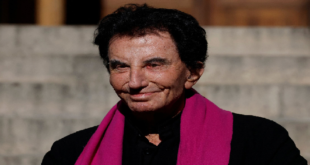13-03-2023
BEIJING: Xi Jinping has kept the country’s central bank governor Yi Gang in his post and retained his finance and commerce ministers, as the Chinese president defied expectations of a large-scale overhaul of his cabinet at this year’s annual parliamentary meeting.
 The reappointments, which analysts said would reassure markets nervous about plans by Beijing to reform the financial sector, were among a swath of senior posts announced at the rubber-stamp National People’s Congress on Sunday.
The reappointments, which analysts said would reassure markets nervous about plans by Beijing to reform the financial sector, were among a swath of senior posts announced at the rubber-stamp National People’s Congress on Sunday.
Aside from the central bank governor, among the most important was the nomination of a senior Xi associate He Lifeng, the former head of the planning agency, as vice-premier.
He Lifeng is expected to take over the stewardship of China’s economic team from Liu He, the Harvard-trained politician who helped steer the world’s second-largest economy through the turmoil of the past five years, including the Covid-19 pandemic.
This NPC meeting is seen as one of the most important in years, with Xi pushing through extensive reforms of the country’s financial regulators and science and technology ministry.
The Chinese president, who is embarking on an unprecedented third five-year term, is looking to revive China’s flagging economic growth while preparing for greater competition with the US on advanced technology.
 Xi had been expected to replace the People’s Bank of China head, who had reached the retirement age of 65 for government ministers, with a commercial banker.
Xi had been expected to replace the People’s Bank of China head, who had reached the retirement age of 65 for government ministers, with a commercial banker.
Analysts said the retention of Yi, a respected technocrat, would send a positive signal to markets as Beijing prepared to transfer some of the central bank’s regulatory functions to the state financial regulatory commission, a new financial watchdog that will be based on the current banking and insurance regulator.
“The institutional reforms suggest the PBoC is clearly going to come under tighter government oversight,” said Christopher Beddor, deputy director of China research at Gavekal Dragonomics. “There was a bit of concern in markets about what that might mean. By opting for continuity, at least for now, it’s a bit of a confidence-boosting measure for markets.”
Dong Ximiao, chief researcher of Shenzhen-based Merchants Union Consumer Finance, said retaining Yi at least temporarily would help ensure the stability of the central bank’s monetary policy.
Policy support for the real economy should remain strong, Dong said, and Yi will be better placed to push the  “implementation of institutional reforms” at the PBoC, which include streamlining the central bank’s branch network.
“implementation of institutional reforms” at the PBoC, which include streamlining the central bank’s branch network.
Analysts cautioned that while Xi had retained Yi and most other minister and minister-level appointees at the NPC meeting, they could still be changed later.
“State Council ministers can be reshuffled at any time,” said Chen Long, co-founder of Beijing-based research company Plenum, referring to China’s cabinet.
Tan Yifei, founder of Jince Frontier, a Beijing-based consultancy, said Yi’s reappointment seemed to be “transitional” to ensure policy consistency. “Personnel changes can be made at the standing committee meeting of the State Council once every two months,” Tan said, adding that more changes were likely in the coming months.
The nominations of China’s top officials were announced in Beijing’s vast Great Hall of the People in front of the thousands of NPC delegates, who applauded enthusiastically as Xi cast his vote on the appointments. (Int’l News Desk)
 Pressmediaofindia
Pressmediaofindia




